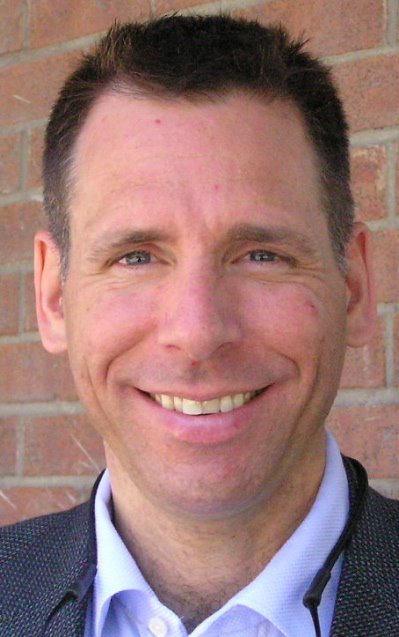Energize, don’t minimize: Africa needs more not less electricity
David Suzuki, on CBC’s radio program Climate Currents told of how satellite photos of our planet at nighttime show North America lit up while Africa remains pitch black.
Suzuki’s fashionably misanthropic sentiments, typical of an affluent political yokel, leave him only one way to interpret this. North Americans and western Europeans are energy guzzlers, Africans are not. What’s his solution? Should Africans renounce electricity and stay the way they are?
There is another way to interpret the satellite photos. Africa at nighttime looks dark from outer space because Africa does not yet have a ubiquitous continental electricity grid capable of illuminating its towns and cities. The lack of a reliable power grid is not because Africans are morally averse to “wasting energy”; it’s because they don’t have either the money or the political stability to build one.
If he were to look at similar satellite photos from the early 1960s, Suzuki would notice the same darkness over India and China. Today these countries would probably appear grey, indicating their increasing electrification and the concomitant increasing quality of life.
Is the brightening over India and China good or bad? We should stop listening to people who think it’s bad and start thinking about how to fully electrify the poor parts of the world.
As I have emphasized on this blog, the only way to do this on a large scale without increasing fossil fuel consumption is by using nuclear energy. The atom is the means by which Africans, Indians, and Chinese can bypass the fossil fuel phase of electrification and vault directly into the post-industrial age.
And we rich energy hogs in North America and western Europe can help make this happen by sponsoring more nuclear projects in the developing world. But first we have to make it financially worth while for western companies to get involved in nuclear development projects.
We can do this by making nuclear projects eligible for international carbon credits. Put the atom back into the Clean Development Mechanism, which is the principal arrangement through which Kyoto signatory countries can finance carbon-reduction projects in developing countries.
Today is August 6, 2007. Sixty-two years ago today two pounds of enriched uranium destroyed the Japanese city of Hiroshima. Hiroshima is a yearly reminder of the paramount importance of nuclear weapons non-proliferation efforts. The Global Nuclear Energy Partnership—a U.S.-led plan to recycle spent fuel and plutonium from nuclear power plants while controlling the manufacture of enriched uranium and plutonium—could strengthen the non-proliferation regime while facilitating the spread of clean power generation to the developing world.
We should solve this problem soon, so that the brightening over India, China, and hopefully Africa is due to non–fossil fueled power generation.
David Suzuki, on CBC’s radio program Climate Currents told of how satellite photos of our planet at nighttime show North America lit up while Africa remains pitch black.
Suzuki’s fashionably misanthropic sentiments, typical of an affluent political yokel, leave him only one way to interpret this. North Americans and western Europeans are energy guzzlers, Africans are not. What’s his solution? Should Africans renounce electricity and stay the way they are?
There is another way to interpret the satellite photos. Africa at nighttime looks dark from outer space because Africa does not yet have a ubiquitous continental electricity grid capable of illuminating its towns and cities. The lack of a reliable power grid is not because Africans are morally averse to “wasting energy”; it’s because they don’t have either the money or the political stability to build one.
If he were to look at similar satellite photos from the early 1960s, Suzuki would notice the same darkness over India and China. Today these countries would probably appear grey, indicating their increasing electrification and the concomitant increasing quality of life.
Is the brightening over India and China good or bad? We should stop listening to people who think it’s bad and start thinking about how to fully electrify the poor parts of the world.
As I have emphasized on this blog, the only way to do this on a large scale without increasing fossil fuel consumption is by using nuclear energy. The atom is the means by which Africans, Indians, and Chinese can bypass the fossil fuel phase of electrification and vault directly into the post-industrial age.
And we rich energy hogs in North America and western Europe can help make this happen by sponsoring more nuclear projects in the developing world. But first we have to make it financially worth while for western companies to get involved in nuclear development projects.
We can do this by making nuclear projects eligible for international carbon credits. Put the atom back into the Clean Development Mechanism, which is the principal arrangement through which Kyoto signatory countries can finance carbon-reduction projects in developing countries.
Today is August 6, 2007. Sixty-two years ago today two pounds of enriched uranium destroyed the Japanese city of Hiroshima. Hiroshima is a yearly reminder of the paramount importance of nuclear weapons non-proliferation efforts. The Global Nuclear Energy Partnership—a U.S.-led plan to recycle spent fuel and plutonium from nuclear power plants while controlling the manufacture of enriched uranium and plutonium—could strengthen the non-proliferation regime while facilitating the spread of clean power generation to the developing world.
We should solve this problem soon, so that the brightening over India, China, and hopefully Africa is due to non–fossil fueled power generation.


1 Comments:
Africa needs lights and stoves. Currently they are living without lights, and burning wood and dung for cooking. A huge improvement in the standard of living can be made by providing electric lights and stoves. Small nuclear reactors that operate without manual intervention can provide this electricity. African countries should be demanding these solutions. It is sort of difficult to sell a technical system to someone if they don't want it. This would be a good time for African's to explicitly shout out that they want nuclear power.
Post a Comment
<< Home